OK, this is the story of my second All-Grain Brew, which I started at 7.40pm last night (Friday) and finished at 2.20am today (Saturday). Itâs a Black Sheep clone from Worcester Hop Shop.
Pale Malt (maris Otter) (grams) 3340
Torrefied Wheat (grams) 390
Crystal Malt (grams) 195
Black Malt (grams) 8
Start of Boil
Challenger Hops (grams) 19
Fuggle Hops (grams) 8
Golding Hops (grams) 8
Last Ten Minutes of Boil
Fuggle Hops (grams) 10
1 x Protafloc last 15 mins of Boil
1 pack of S-04
Compared to my first SMaSH, it went smoothly â but I still made some silly mistakes that I kicked myself for. Iâd value feedback and comments from more experienced hands.
I borrowed an urn to act as a HLT, treating tap water with Campden. I switched the urn on with 30 litres of water at 7.40pm, and whilst the water heated I got on with sterilizing and cutting up the insulation for my FV Mash Tun.
By 8.20pm the water had reached 72 Celsius, and so I added the recommended 10 litres of hot water, mashed in the grain in the bag and tucked it up for 90 minutes. The initial temperature was 68 Celsius.
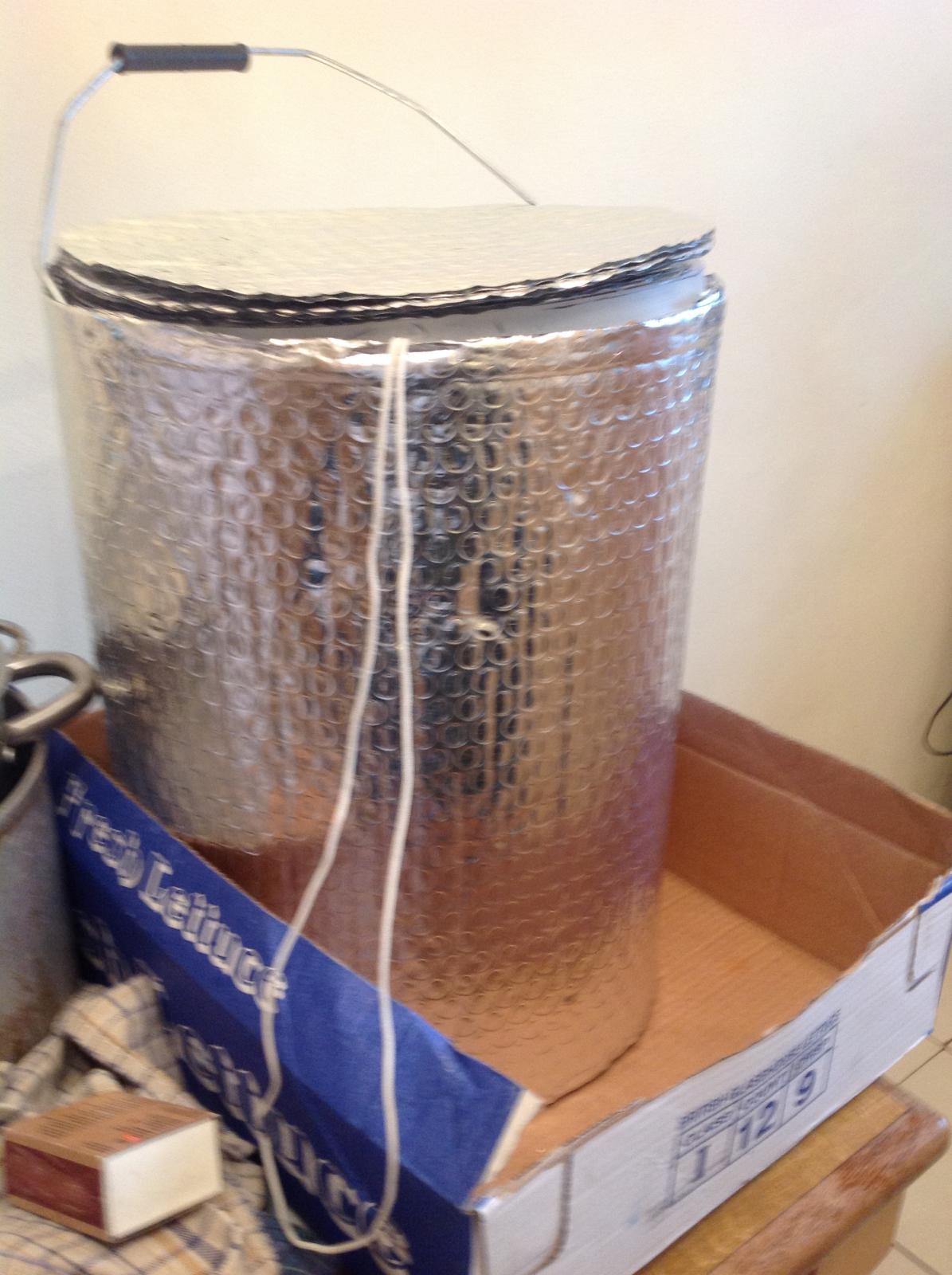
At 9.50pm with the HLT at 80 Celsius I unpacked the mash tun (66 Celsius) and using a second FV and a colander began to sparge.
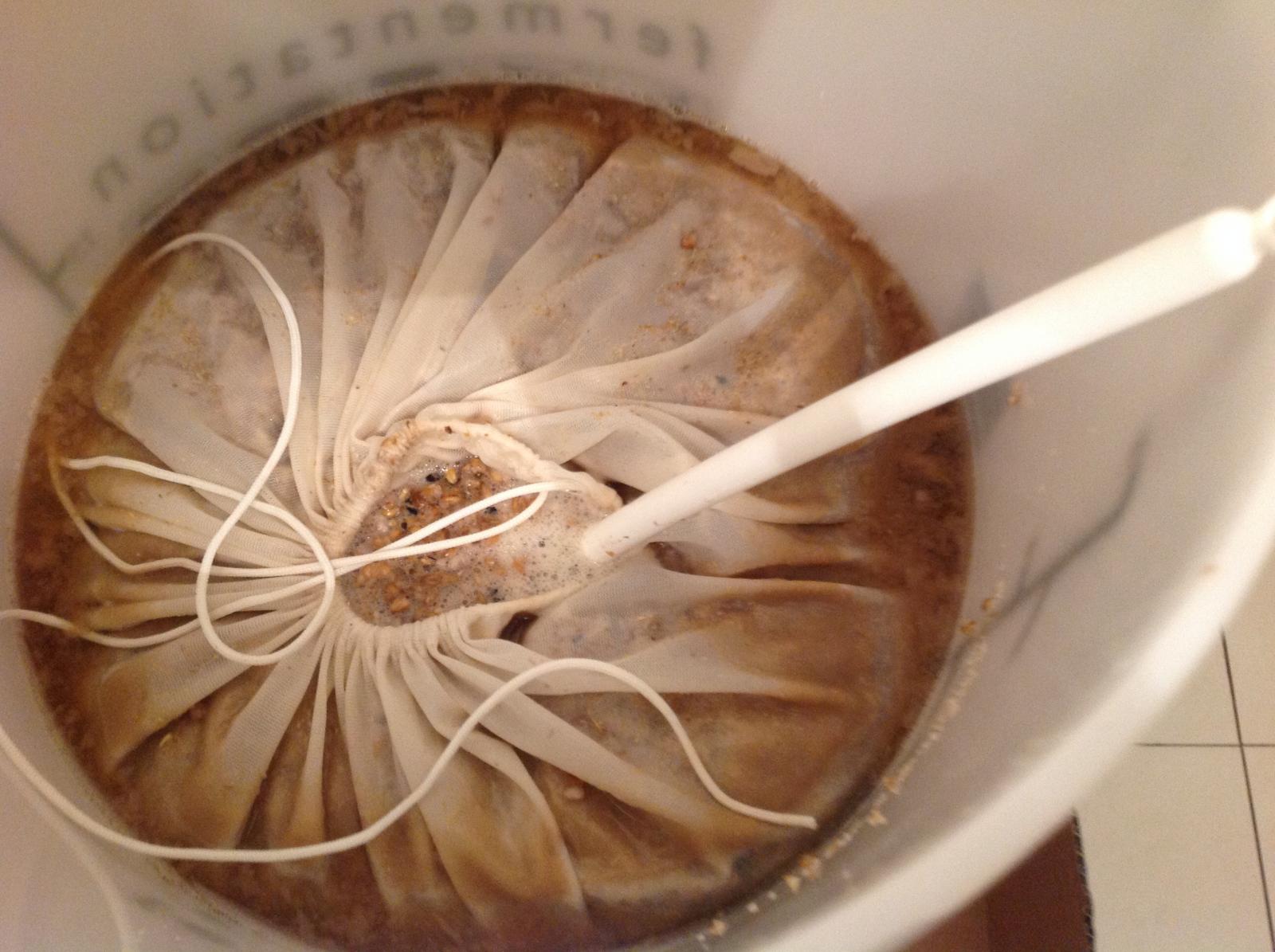
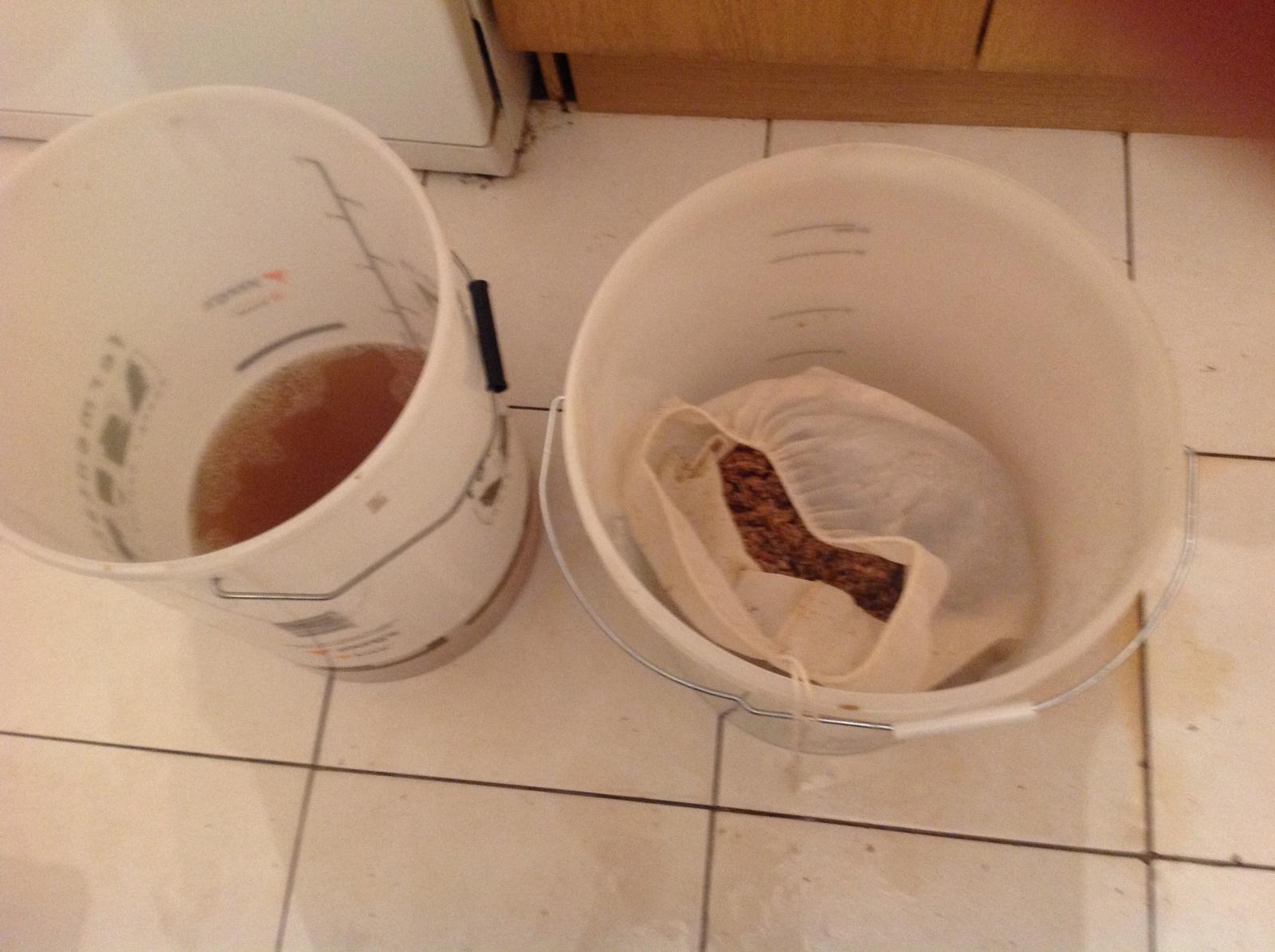
Firstly I slowly poured through the first runnings from the mash back through the grain, then I slowly poured through 20 litres of sparge water. This was a very low-tech thing, just using a jug. After each sparging of 5 litres of water through the grain, I poured the result back through a second time. In total this took 30 minutes. Though this process I began to transfer the wort to the boil pans. By 10.20pm I had 3 pans containing a total of 24 Litres of word, plus another 5 litres if wort in an FV.
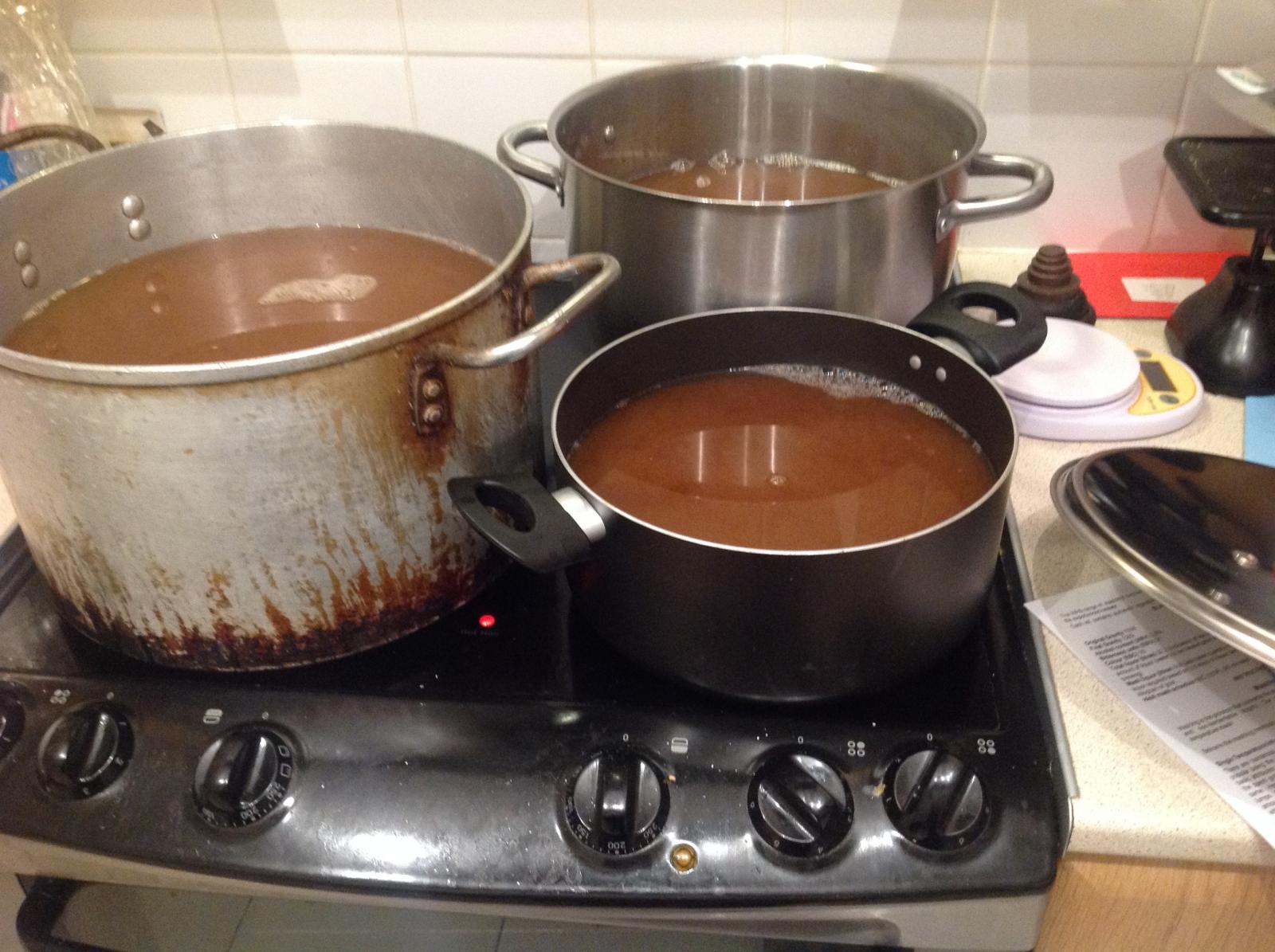
It took ages for the pans to come to the boil. I found this irritating. I need to grow up. The two big pans on the larger electric cooker rings were fine, but the small pan on the small cooker ring was a problem. Eventually I gave up on the small pan and added itâs contents to the larger ones after the hot break. The boil began at 10.55pm. I added hops etc to schedule, splitting between the pans according to their volume of wort.
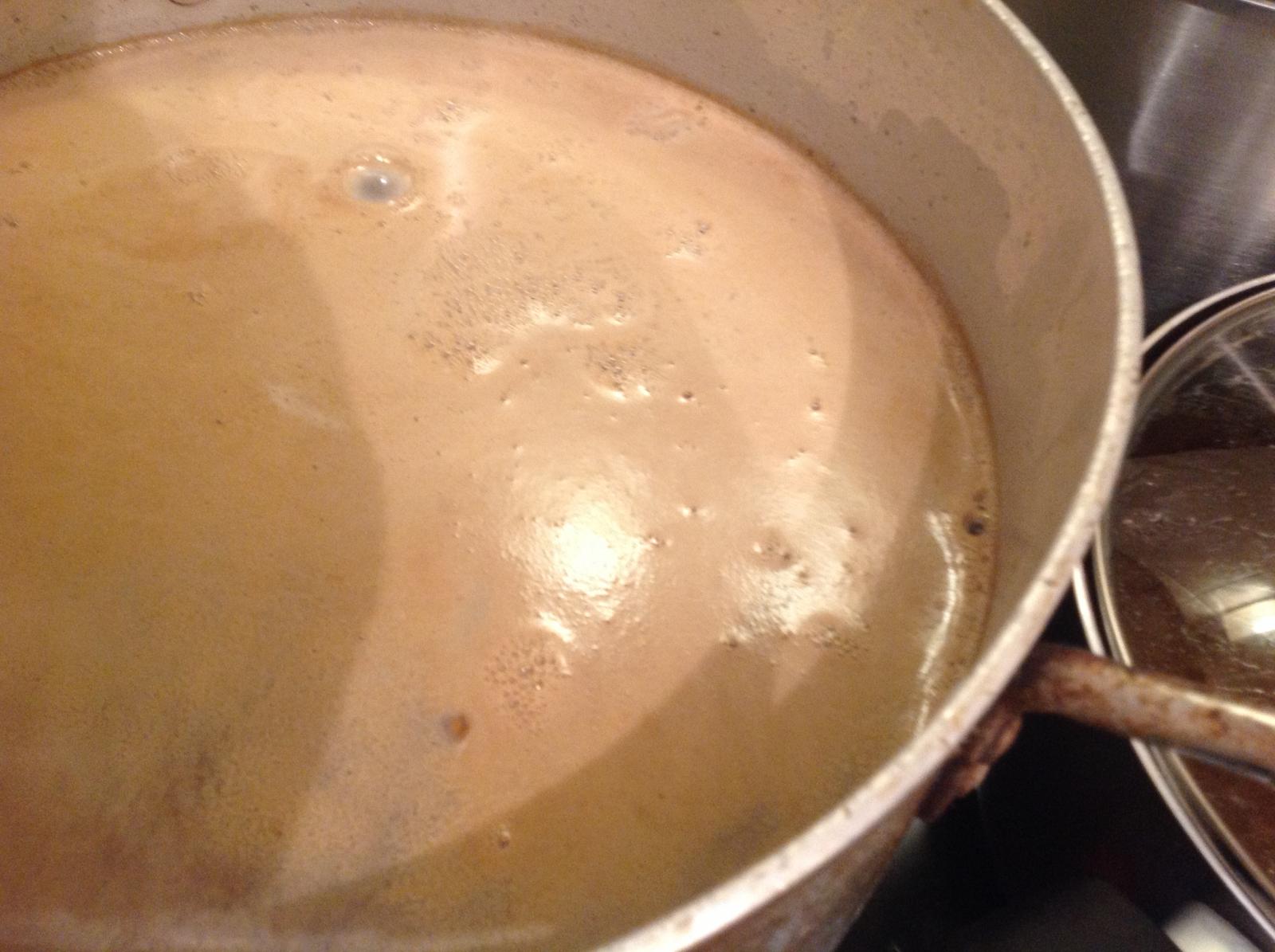
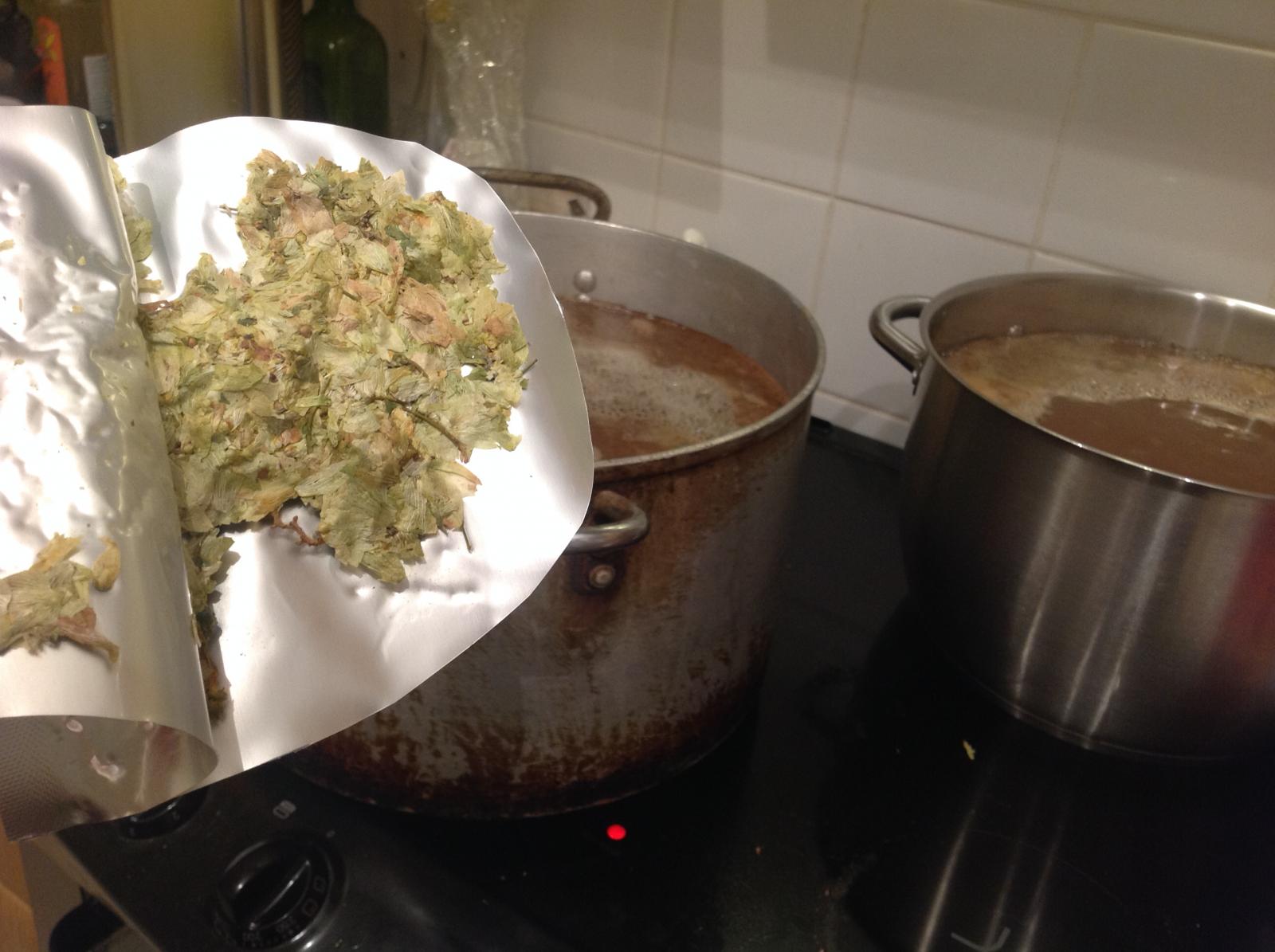
During the 90 minute boil I filled the bath with cold water and at 12.25am I carried the pans upstairs to the bath. The temperature dropped quickly for the first 20 minutes down to around 46 Celsius, and then I changed the water and it dropped further.
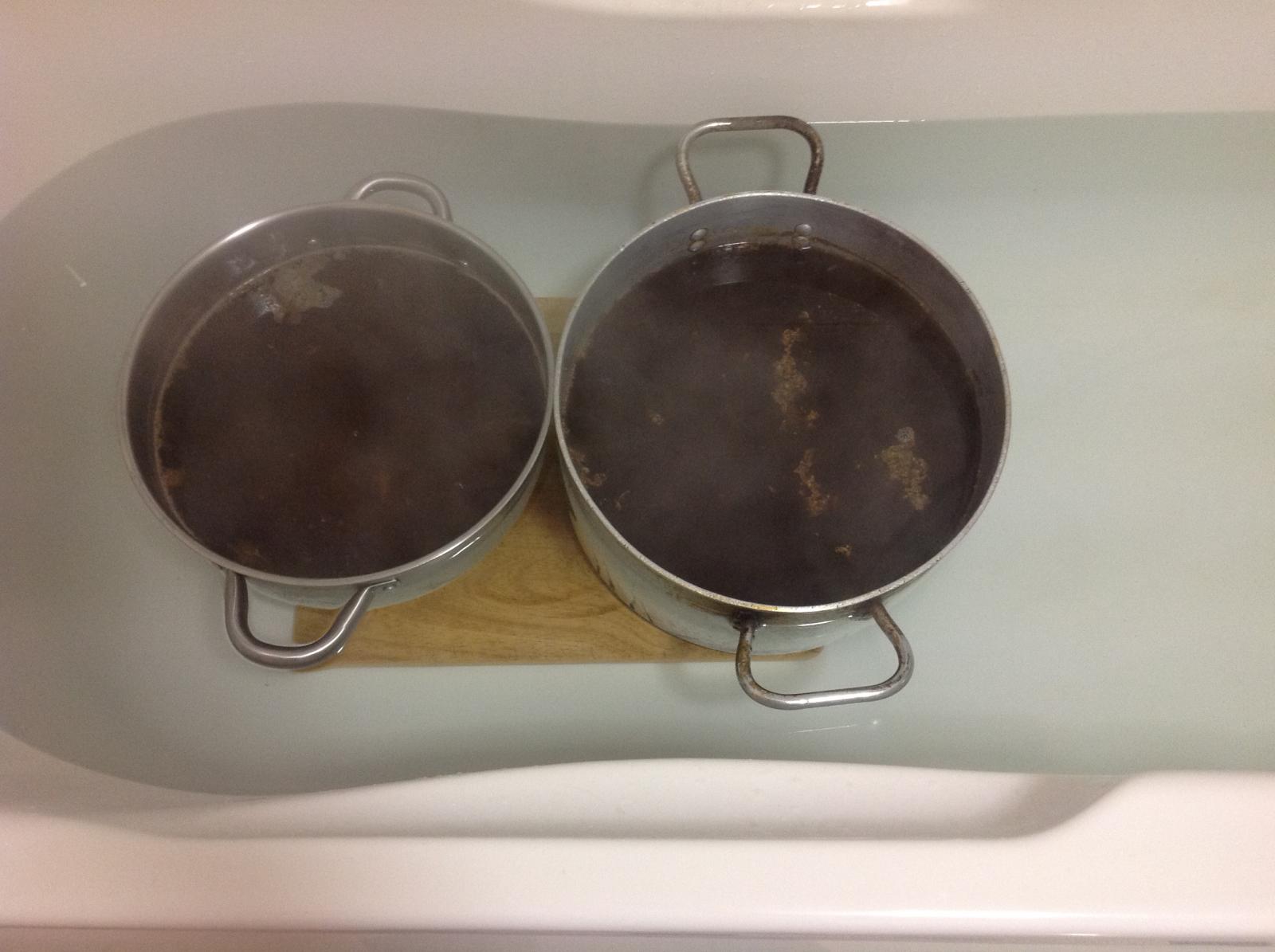
Here I made a mistake: I stopped chilling with the wort at 35 Celsius, thinking that I high pour would give sufficient further cooling. I was wrong. The treated water in my urn was still around 40 Celsius, so liquoring back didnât help either. So, I ended up hanging around for an extra hour from 1 to 2am waiting for the wort to cool.
Well, I cleaned the kitchenâ¦rehydrated the yeastâ¦.had a beerâ¦Festival Golden Stagâ¦.felt frustratedâ¦.
With temperature correction, after making up to 23l, the OG was 1038. The online calculator gives this an efficiency of around 70%
Eventually I pitched at 2.20am, and crawled into bed, to the mockery of SWMBO.
What I learnt:
1. You learn by doing. Its great reading and learning on this forum, the people are great and I have learnt lots. But at the end of the day, itâs the doing that counts.
2. Know your set up.
a. With my cooker, I can only really boil wort on the two big
rings, and then only up to 10 litres in each pan.
b. I had originally planned to mash overnight, but because I
didnât know the limitations of my insulation, I decided to play it safe
â I will need to experiment more before I trust my set up to go
overnight without losing too much heat.
3. It still feels really dodgy carrying big pans of hot sugary water up the
stairs.
4. I need to plan my brew day better. Next time, I will get the family to
switch on the HLT before I get home from work, so I can get the mash
on c6pm. This will just lead to a better experience.
5. When it gets late, and I are tired, I can try to rush â and in the end this
just makes things take longer.
6. It is still fun, even when things are tricky.
Cheers
Martin







Pale Malt (maris Otter) (grams) 3340
Torrefied Wheat (grams) 390
Crystal Malt (grams) 195
Black Malt (grams) 8
Start of Boil
Challenger Hops (grams) 19
Fuggle Hops (grams) 8
Golding Hops (grams) 8
Last Ten Minutes of Boil
Fuggle Hops (grams) 10
1 x Protafloc last 15 mins of Boil
1 pack of S-04
Compared to my first SMaSH, it went smoothly â but I still made some silly mistakes that I kicked myself for. Iâd value feedback and comments from more experienced hands.
I borrowed an urn to act as a HLT, treating tap water with Campden. I switched the urn on with 30 litres of water at 7.40pm, and whilst the water heated I got on with sterilizing and cutting up the insulation for my FV Mash Tun.
By 8.20pm the water had reached 72 Celsius, and so I added the recommended 10 litres of hot water, mashed in the grain in the bag and tucked it up for 90 minutes. The initial temperature was 68 Celsius.
At 9.50pm with the HLT at 80 Celsius I unpacked the mash tun (66 Celsius) and using a second FV and a colander began to sparge.
Firstly I slowly poured through the first runnings from the mash back through the grain, then I slowly poured through 20 litres of sparge water. This was a very low-tech thing, just using a jug. After each sparging of 5 litres of water through the grain, I poured the result back through a second time. In total this took 30 minutes. Though this process I began to transfer the wort to the boil pans. By 10.20pm I had 3 pans containing a total of 24 Litres of word, plus another 5 litres if wort in an FV.
It took ages for the pans to come to the boil. I found this irritating. I need to grow up. The two big pans on the larger electric cooker rings were fine, but the small pan on the small cooker ring was a problem. Eventually I gave up on the small pan and added itâs contents to the larger ones after the hot break. The boil began at 10.55pm. I added hops etc to schedule, splitting between the pans according to their volume of wort.
During the 90 minute boil I filled the bath with cold water and at 12.25am I carried the pans upstairs to the bath. The temperature dropped quickly for the first 20 minutes down to around 46 Celsius, and then I changed the water and it dropped further.
Here I made a mistake: I stopped chilling with the wort at 35 Celsius, thinking that I high pour would give sufficient further cooling. I was wrong. The treated water in my urn was still around 40 Celsius, so liquoring back didnât help either. So, I ended up hanging around for an extra hour from 1 to 2am waiting for the wort to cool.
Well, I cleaned the kitchenâ¦rehydrated the yeastâ¦.had a beerâ¦Festival Golden Stagâ¦.felt frustratedâ¦.
With temperature correction, after making up to 23l, the OG was 1038. The online calculator gives this an efficiency of around 70%
Eventually I pitched at 2.20am, and crawled into bed, to the mockery of SWMBO.
What I learnt:
1. You learn by doing. Its great reading and learning on this forum, the people are great and I have learnt lots. But at the end of the day, itâs the doing that counts.
2. Know your set up.
a. With my cooker, I can only really boil wort on the two big
rings, and then only up to 10 litres in each pan.
b. I had originally planned to mash overnight, but because I
didnât know the limitations of my insulation, I decided to play it safe
â I will need to experiment more before I trust my set up to go
overnight without losing too much heat.
3. It still feels really dodgy carrying big pans of hot sugary water up the
stairs.
4. I need to plan my brew day better. Next time, I will get the family to
switch on the HLT before I get home from work, so I can get the mash
on c6pm. This will just lead to a better experience.
5. When it gets late, and I are tired, I can try to rush â and in the end this
just makes things take longer.
6. It is still fun, even when things are tricky.
Cheers
Martin












